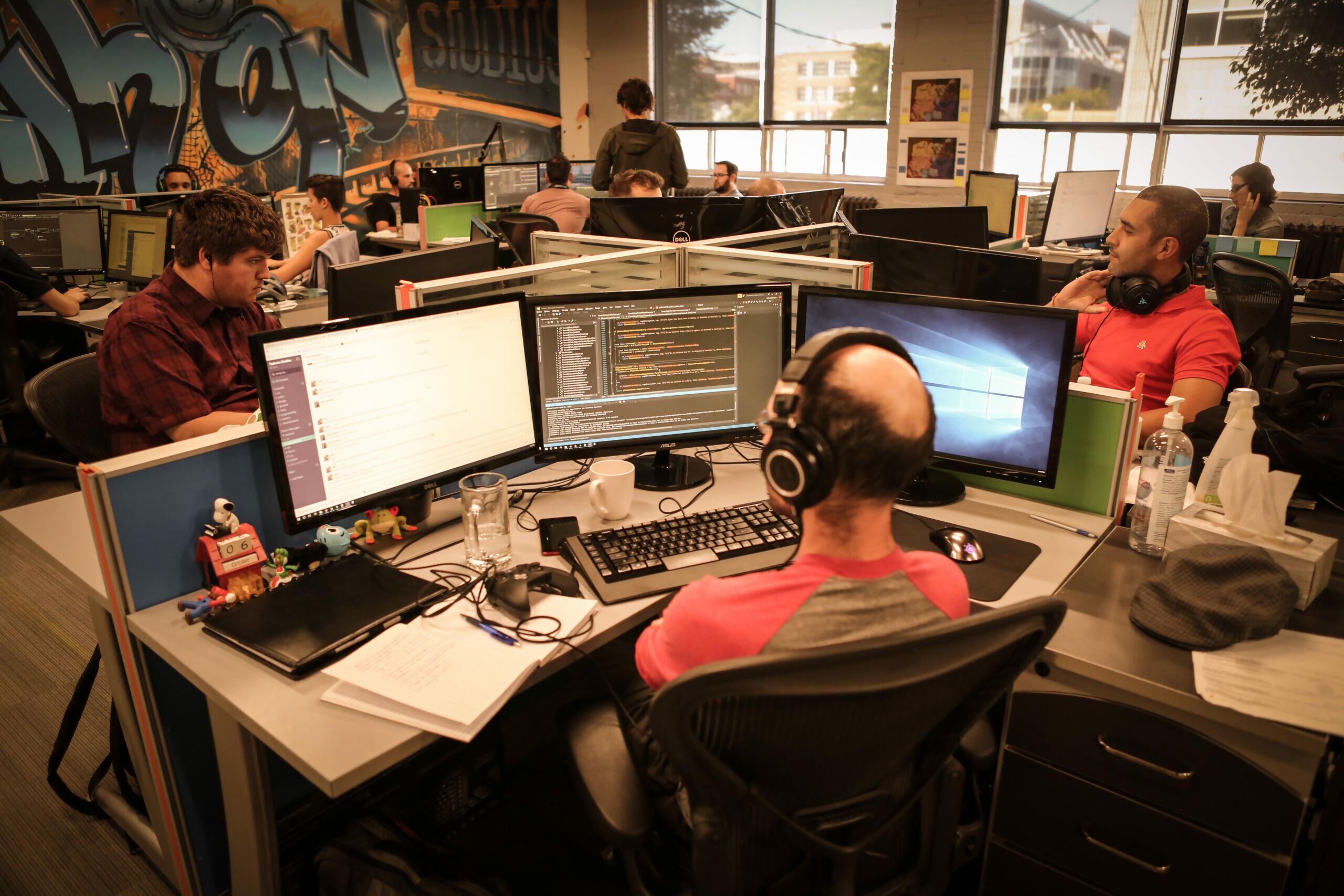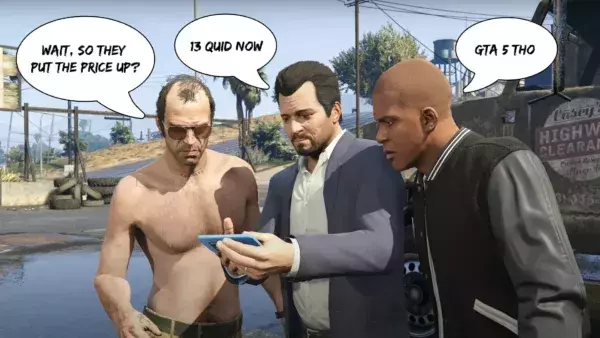
As the games industry workforce gets older, more and more seasoned developers are saying they’re ready to start their own studios. I believe this is a convergence of three key factors:
1. Game engine technology is finally at the point where it doesn’t matter whether you work in a huge company or are simply two people in an office. Everyone has access to the same awesome game engine technology – Unreal Engine or Unity. This simply wasn’t the case in the past: the barrier to entry was just too high, so you needed to build your own tech.
2. The demand for unique and high-quality content has never been higher. You don’t need to make Fortnite to be successful, as long as you make something that a subset of people love. This also means that some people might hate your game, but I’d argue that’s a good thing. If your game has a clear voice, you have a much better chance of success than Yet Another Call of Duty Clone. Making clones is the express track to failure.
3. Digital distribution has hit a tipping point where it’s a clear alternative to physical media. Now, many will argue that Steam has been there for years, and they’re right, but for all the console players out there, we’re finally seeing truly open digital storefronts from Sony, Microsoft, and Nintendo.
The clearest indication of this is how publishers are now pointing out what percentage of their sales is digital. This is beneficial for pretty much everyone, with the noted exception of GameStop. (Personally, I don’t think you’re going to find many developers crying for that retailer after their years of selling used game trade-ins. This was a practice rife with issues, resulting in them taking way too much of the pie and not returning it in any way to the people who made games.)
With all this in mind, here are some of the things I’ve learned in the process of co-founding Typhoon, my own studio in Montreal. Brace yourself for the rollercoaster ahead…
Get out of your house
Not everyone will agree with me on this one, but I think there’s something powerful about getting out of your house and going to some kind of shared workspace. This isn’t to say that amazing companies don’t start in people’s basements – they do. I’d argue, though, that the distractions are just too intense at home; if you’re older and have a spouse, pets, kids, or other things that require attention and care, you have to be prepared to be fighting battles on multiple fronts.
Also, don’t kid yourself: a start-up is a battle, and lots of people are going to tell you, “It’s stupid, it won’t work, you’re wasting your time.” It’s a battle of wills where your commitment will be tested every day. If you’re at home, the battle will be much harder.
 3_of_19_.jpg” alt=”” width=”1920″ height=”1080″ />
3_of_19_.jpg” alt=”” width=”1920″ height=”1080″ />Typhoon are now working on their first release, Journey To The Savage Planet.
At the same time, I don’t recommend going out and spending money on a fancy office – or even worse, a fancier (and often very expensive) co-working space. When we started Typhoon, our first office was in a disused mocap studio. A friend of mine, Sam Girardin, the CEO of Game On, let us camp there for no rent. (Once again, thanks Sam!)
The downside was that there were no windows, and we were five guys in a completely blacked-out room with padded walls. When people came in for interviews, they saw what we were doing and understood our approach: we spent money on talent rather than real estate.
This had the added benefit of screening out people who were looking for a cushy office and felt put off by our spartan approach. We knew if they signed, they were coming for the right reasons. Win-win.
Better Call Saul
When we set up the company, we had no idea how much paperwork was involved. This was probably a combination of wishful thinking and inexperience. However, we did have the foresight to bring in a lawyer as our vice president of legal/business.
You’ll need at least the following: shareholder agreements, founders agreements, contracts, filing with the various governments for corporate registries, minute books, and more besides.
Rather than put it off, I’d strongly recommend putting the time in to get all this sorted out up-front. Starting a company with co-founders is like a marriage, and you need to set the ground rules in advance. Many have been burned by being lax here; don’t stick your head in the sand.

Assembling flat-pack furniture’s one of the many unglamorous jobs that goes into setting up a new studio.
You might be thinking, “But Reid, what if we have no money to pay a lawyer?” Well, dear reader, we were in the same place when we started.
At Typhoon, we allocated a percentage of the company to our vice president in lieu of his fees. This not only saved us valuable cash, but also made him invested in our success. We went from a model where someone wanted to bill us as many hours as possible, to one where he simply wanted to do the best job for the company. Our VP, Kiri Vanikiotis, has not only been our lawyer, but an incredibly valuable business partner who’s able to advise us in areas where we don’t have experience. In short, he’s a star, and we wouldn’t be where we are today without him.
Make everyone invested
This one seemed obvious to me, but I was shocked to discover that not every start-up does this. Before moving to Montreal, I lived in the Bay area, where nobody would join a start-up unless they were given some type of equity package as part of their compensation. For some reason, this has not yet caught on in Montreal, but I think it’s critical.
 1_of_19_.jpg” alt=”” width=”1920″ height=”1080″ />
1_of_19_.jpg” alt=”” width=”1920″ height=”1080″ />Since it was founded in 2017, Typhoon’s team has steadily grown – and it’s since moved to a larger office in Montreal.
When you start your company, you will most likely not be able to pay salaries commensurate with the big guys, so you need to incentivise people in different ways. By giving out company stock, you signal to your people that you’re all in it for the long haul, and you want them to be part of the company’s ultimate success. It’s not just about the founders making a profit – it’s about the staff.
Sell the dream
When we started Typhoon, it was all about selling the dream to get funding, and bringing people on board. When you’re at this stage, the importance of a great-looking presentation can’t be understated. Again, some people will disagree with me, and say it doesn’t matter what’s in your pitch – it’s the game itself that counts.
Most of the time, I’d agree this is true – except in this one circumstance: before you have anything on screen, you need a presentation that looks kick-ass. If you’re setting up the company without an artist, you can find countless pieces of reference material on the internet. Or even better, get some custom concept art created to properly showcase your idea.

It may look a bit sparse, but it’s a start. The comfy office chairs certainly help.
When people open presentations, they generally hate reading lots of text. Show them why your game’s cool. Interestingly enough, the freelance marketplace Fiverr has now gone into game development, so it’s easier than ever to get some concept art at an affordable cost.
Also, you should always keep your pitch at around 20 slides or less, and then have more detailed documents available to prospective partners. When we started Typhoon, we spent countless hours on a great-looking presentation that grabbed people’s attention. This is time well spent.
What’s even better than a solid presentation, however, is a prototype that effectively shows off your game idea. It’s worth noting to always err on the side of quality over quantity. For example, one or two really great prototypes are way more valuable than ten average ones.
Finally, don’t expect people to play your prototypes. Some people will, some won’t – don’t be offended. The way to circumvent this problem is to create narrated videos that explain what they’re looking at and why it’s interesting. This is something we still do to this day at Typhoon.
With every milestone, we make videos explaining to our publisher and partners what they’re looking at, where it is in terms of completion, and why it’s interesting. I would highly recommend doing the same. It can also serve as a great way to keep your team motivated, since it provides a timeline of how far they have come.
Pedigree will only get you so far
When we started Typhoon, we had no idea how we’d get funding to make our game. Fortunately, our founders had strong pedigrees (the games we’ve collectively worked on include Assassin’s Creed, Far Cry, Deus Ex, Spore, and the Batman: Arkham series).
This pedigree got us into meetings, but the onus was on us to sell them on our idea and its commercial viability. We needed to get potential partners excited about our vision for the game and studio. In short, unless you’re Hideo Kojima, there are no free rides.
Another mistake we made was believing that we could raise money while working at our previous jobs. We learned the hard way that building a company isn’t like getting a new job. You need to show you’re fully committed and working for free at your start-up. As a general rule, nobody is going to give you money without complete commitment on your part.

Finally, some natural light.
If you have the ability to invest your own money into your start-up, this will go a long way in demonstrating to your investors that you’re serious. Be aware, though, that this is likely to scare the hell out of your spouse. This is, however, what we did at Typhoon and it paid off in a big way.
In short, starting a company isn’t for the faint of heart. You’re going to be challenged in ways you never thought possible, and you’ll discover that the learning curve is exponential. People are going to question your motives, but at the end of the day, it’s a battle of will, and if you believe strongly enough, you can make it happen.
Also, never forget that it’s all about the team and who joins you on your adventure. I’m a firm believer in an old Pixar saying: “Give a great team a mediocre idea, and they’ll make it shine; give an average team a great idea, and you’ll get mediocre results.” Nothing could be more true.





